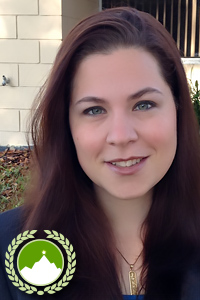News and Events
Kaizen Highlight!Tuesday, July 28, 2015 - During this year’s Public Health Improvement Training, PHQIX was excited to co-sponsor a Kaizen Workshop led by Continual Impact, LLC. Attendees learned how to complete each step of a Kaizen process and took part in group activities to demonstrate the power of brainstorming with your team! For more information on Kaizen, browse these QI initiatives that incorporated Kaizen methodology and check out these four articles authored by PHQIX Expert Panel member, Chris Bujak, and Pam Vecellio of Continual Impact, LLC. |
|
QI Innovator Award Winner – Annette VanDomelenMonday, July 20, 2015 – It is our pleasure to honor Annette VanDomelen, from the Health Services division in Missoula City-County Health Department in Montana, as a public health QI Innovator. Congratulations Annette! What makes Annette VanDomelen a QI Innovator? Annette VanDomelen, of the Health Services division in Missoula City-County Health Department (MCCHD) in Montana, has been involved in some enormously successful and well-received projects—none of which were small or easy. She has also implemented QI into her personal life: by doing a marriage QI project with her husband! Annette uses her gift for the QI process to bring people together to think outside the box and find solutions using QI tools. Annette’s ability to grasp the full possibilities of QI right away has helped MCCHD take ownership of its QI culture. During MCCHD’s accreditation site visit, the site reviewers noted the pervasive culture of QI, even listing it as one of MCCHD’s three strengths. MCCHD was accredited in March 2014. We asked Annette to share some insights regarding challenges encountered, lessons learned, and advice about public health QI. Here's what she had to say!  Q: Describe one challenge you have encountered in conducting QI in public health and how you worked to overcome that challenge. A: Staff members were very resistant at first. The process and steps of QI and resisting jumping straight to a solution was frustrating for some. Others had a hard time believing that we would be allowed to implement our change once we finally got to that point. It has been very gratifying to see people slowly change their minds about QI and to now eagerly agree to be on teams and to make recommendations about future projects. Q: What is one key lesson you have learned in your experience implementing public health QI initiatives? A: I think it is important to "show your work." It is easy to skip steps or do steps incorrectly. I recently helped a team develop a terrible aim statement! (The solution was hidden in the aim statement.) By documenting each step and doing a 5-minute review with our Performance Management Quality Improvement (PMQI) committee, we caught the mistake early and were able to make the correction. We have a summary form and quick review process in place that we hope will keep us on track. Q: What advice would you give to public health practitioners who are new to QI? A: I kept hearing that you could not do QI "wrong." You can! We did! But that really is OK. We learned a lot from taking off in the wrong direction for a while and then correcting ourselves. Sharing those mistakes with other teams is just as useful as sharing the successes! Reading the projects on PHQIX is incredibly helpful. Take time to wander around the site and read about projects or explore how others have used QI tools. Congratulations, Annette! Thank you for sharing these wonderful insights, for your demonstrated leadership in public health QI, and for being a member of the PHQIX community! |
|
Local News: Register Now for the 2015 Public Health Accreditation Readiness Conference!The California Department of Public Health invites you to attend the 2015 Public Health Accreditation Readiness Conference, Moving Forward Together: California’s Journey to Public Health Accreditation. This conference will be held in both Northern and Southern California. To read more about the Northern Conference, to be held August 26- 27, 2015 at the DoubleTree by Hilton Sacramento, click here. For more information on the Southern Conference, to be held September 9-10, 2015, at the DoubleTree by Hilton Ontario Airport, click here. If you have any questions or need assistance, please feel free to contact Glayds Glaude. |
|
QI Innovator Award Winner – Sara WarrenMonday, June 15, 2015 – It is our pleasure to honor Sara Warren, from the Florida Department of Health in Seminole County, as a public health QI Innovator. Congratulations Sara! What makes Sara Warren a QI Innovator? Sara Warren serves as Chair of the Quality Council at the Florida Department of Health in Seminole County (DOH-Seminole). In this capacity, she led the redesign of the council’s charter, which resulted in a Best Practice acknowledgement for policy design by the state office. Sara has used her training in the Kaizen and DMAIC (Design, Measure, Analyze, Improve, and Control) approaches to spearhead many QI projects within her organization. As the leader of her Lean Six Sigma Green Belt project team, she completed a 6-month in-depth analysis of DOH-Seminole’s clinical cycle times and identified root causes for process waste. Her team then eliminated redundancies and developed a more streamlined process. Sara also led DOH-Seminole’s first-ever Kaizen event and has since ensured active continuation of event outcomes and next-step opportunities. Sara engages staff members in the QI process and supports their active participation in projects, not only by meetings and training but also with a “get out there and in the field” approach. Sara meets routinely with both internal and external clients to ensure that project targets accurately represent the needs of the stakeholder groups. Recently, Sara helped to lead a communication blitz where electronic surveys and physically posted comment boards were reviewed with stakeholder groups during the last year of DOH-Seminole QI. These posters and surveys asked for recommendations regarding next year’s project ideas and ways to continue to support a QI culture. By routinely presenting documented project information, both locally and on a wider scale, Sara has communicated the benefits of QI to a variety of stakeholders. We asked Sara to share some insights regarding challenges encountered, lessons learned, and advice about public health QI. Here's what she had to say!  Q: Describe one challenge you have encountered in conducting QI in public health and how you worked to overcome that challenge. A: As public health representatives, we understand the importance of time. We are often asked to wear a multitude of hats and ensure that the day-to-day needs of our organization are met. We want to resolve an issue and move forward to the next hot topic at hand. We are problem solvers. Unfortunately, this approach can sometimes lead us down the path of thinking we know the answer before we really understand the root cause generating the problem. Developing a truthful process map and utilizing straightforward data help to identify the big waste issues and areas in which to best focus our attentions. Keeping an open mind and making decisions based on validated information ensure that we truly focus on a root cause and not a symptom. Q: What is one key lesson you have learned in your experience implementing public health QI initiatives? A: There are many components to a QI initiative. Ensuring that you have a fluid and realistic action plan can help to set priorities, secure accountability, and stay on track. Keeping an open line of communication with your stakeholder groups and a high level of transparency regarding where the project stands help to gain support and trust in your project. Consistently reviewing your action plan with your stakeholder groups can help you achieve that trust and support. Stakeholders are able to see what really needs to occur to meet project goals and what you have accomplished so far in trying to reach your objective. Q: What advice would you give to public health practitioners who are new to QI? A: QI is essential to ensuring the efficiency and effectiveness of public health practices. It is an exciting arena that can really produce results for you and your organization. At times, it can be overwhelming, with thousands of tools at your disposal and various methods to use. My advice… keep calm, stay flexible, and find the path that works best for you. Congratulations, Sara! Thank you for sharing these wonderful insights, for your demonstrated leadership in public health QI, and for being a member of the PHQIX community! |
|
QI Innovator Award Winner – Alice SimmonsWednesday, May 20, 2015 – It is our pleasure to honor Alice Simmons, from the Immunization, Tuberculosis, and Syringe Services/Exchange programs at Whatcom County Health Department (WCHD) in Washington State, as a public health QI Innovator. Congratulations Alice! What makes Alice Simmons a QI Innovator?  Alice Simmons supervises the Immunization, Tuberculosis, and Syringe Services/Exchange programs at Whatcom County Health Department (WCHD) in Washington State. She is known as the “poster person for QI” and diligently works to diffuse QI and hone programs to perfection throughout the organization. One of the many ways that Alice has spread the word about QI is by using a Kanban board posted outside her office to gather her staff and discuss QI and improvement progress. She has worked on several QI projects whose summaries are posted on PHQIX, and last year, she served as lead on the Food Safety and Health Equity QI project. Alice regularly presents to the WCHD Performance Management Team on current progress on QI projects. Alice is instrumental in bringing other staff into the QI process and sharing her wealth of knowledge with them. We asked Alice to share some insights regarding challenges encountered, lessons learned, and advice about public health QI. Here's what she had to say! Q: Describe one challenge you have encountered in conducting QI in public health and how you worked to overcome that challenge. A: I have worked on several QI projects, each with a different team of individuals. During the first several meetings, each project encountered resistance to change. This resistance was particularly strong once a change was identified for implementation. Interestingly, even the individuals who were strong proponents of the change resisted it. Each group I’ve worked with has dealt with resistance to change by first acknowledging up front that change can be challenging and difficult. Often, resistance to change can be decreased by maintaining some current processes while incorporating new procedures and techniques. Generally, resistance decreases as members contribute, take ownership of the project, and see progress toward goal achievement. Q: What is one key lesson you have learned in your experience implementing public health QI initiatives? A: In spite of initial resistance that often occurs among team members, one project often leads to another. As a QI project progresses, staff begin to view QI as a continuous process, and QI becomes a part of their everyday work. Q: What advice would you give to public health practitioners who are new to QI? A: Start with a small focused QI project. With our first project, we started with a team of 10, which included representatives from 2 external community health care networks. After several months, we realized that too many aspects of the project were out of our control, and there were too many QI team members, which was frustrating for all. The team refocused on an internal project, and the number of members decreased to eight. Almost immediately, the staff experienced success because we were working on a project over which we had control. This really energized the QI members and provided even more momentum. Congratulations, Alice! Thank you for sharing these wonderful insights, for your demonstrated leadership in public health QI, and for being a member of the PHQIX community! |
|
Online QI Resource for Public Health StudentsPublic health practitioners are increasingly using quality improvement (QI) methods and tools to improve agency performance and individual programs. Professionals already working in the field are learning how to apply these concepts through various professional development trainings and technical assistance offered by National Network of Public Health Institutes (NNPHI), the Association of State and Territorial Health Officials (ASTHO), the National Association of City and County Health Officials (NACCHO), the National Network of Public Health Institutes (NNPHI) and the Public Health Accredidation Board (PHAB) among others. To improve the future public health workforce, exposure to public health practice–based QI should also be provided to students during their formal graduate public health education. QI is incorporated into the Association of Schools and Programs in Public Health MPH Core Competency Model and the Core Competencies for Public Health Professionals.  The Public Health Quality Improvement Exchange (PHQIX) is a useful tool for teaching students about the application of QI concepts. PHQIX is an online community designed to be a communication hub for public health professionals interested in learning and sharing information about QI in public health. The purpose of PHQIX is to disseminate information learned through QI initiatives and facilitate increased use of QI in public health practice. PHQIX includes an online database of QI efforts conducted by public health departments across the country. The search and query functions enable users to find projects and tools relevant to their needs. I have used PHQIX in teaching QI to MPH and DrPH students. It is an ideal online platform for “on-the-ground training” that significantly supplements course content. PHQIX is a resource that helps teach the real-world application of public health QI. In my courses, I have incorporated PHQIX at various times during the semester. Once students have learned a particular theory or QI method, tool, or approach, they are then assigned to review its application in PHQIX. For example, students analyze aim statements of QI projects; assess how and when a QI project engages its customers and stakeholders; and evaluate stages of Plan, Do, Study, Act cycles. Furthermore, students compare and contrast how QI tools have been used in different projects to advance their understanding of the connection between QI and public health department accreditation. Ultimately, students gain an improved understanding of how to assess success for a QI project beyond the project reaching its intended aim. Equally important, they learn from the lessons learned by the project’s developers. Students are encouraged to engage with project authors via the PHQIX online community for additional questions and insights into the project. My students have commented that learning the history of public health QI and using the appropriate methods and tools combined with real-world application via PHQIX is an asset of the course. Students have also noted that they have referred their colleagues to PHQIX. Beyond a course specifically in public health QI, PHQIX could easily be incorporated into a variety of other graduate or undergraduate public health courses to demonstrate improvement processes conducted in the field of public health administration. PHQIX, created by RTI International and funded by the Robert Wood Johnson Foundation, launched in September 2012. To date, there are 1674 registered users of PHQIX who are helping achieve the project goal of sustaining national QI efforts by providing public health practitioners with a means for obtaining knowledge about their colleagues’ experience. From my experience, public health students also greatly benefit from learning about first-hand QI experiences from those in the field. Kusuma Madamala, PhD, MPH Public Health Systems Consultant
|
 |
PHQIX is at the PHSSR Keeneland Conference!Tuesday, April 21, 2015 - PHQIX is at the PHSSR Keeneland Conference! Stop by to network with the QI community and maybe walk away with prizes! Stephen Brown of the PHQIX team will be at the conference presenting a poster titled "Quality Improvement Trends in Public Health Practice." The poster explores the trends in QI work performed by public health practitioners, pulling data from published QI initiatives on PHQIX. The poster session is Tuesday, April 21, 2015, from 5:30 to 6:45 pm in the Magnolia Jr. Ballroom at the Hilton Downtown Lexington. |
 |